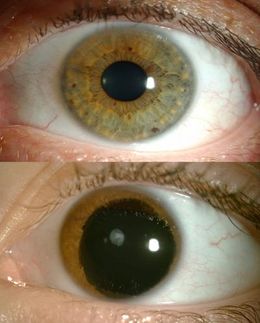Santhera Reports Positive Outcome for Catena/Raxone in Phase III DMD Trial
Advertisement
Santhera Pharmaceuticals reported that the results of secondary respiratory function endpoints from the on-going analysis of the DELOS trial in Duchenne muscular dystrophy (DMD) corroborate the positive outcome for the primary endpoint. These data provide further supportive evidence of a treatment benefit for Catena®/Raxone® in DMD.
As previously announced, the DELOS trial met the primary endpoint, the difference between Catena®/Raxone® and placebo in the change from baseline to week 52 in Peak Expiratory Flow (PEF as percent predicted, PEF%p). Hospital-based spirometry assessments demonstrated that Catena®/Raxone® significantly reduced the annual decline in PEF%p by 66% compared to patients taking placebo. The average annual decline in PEF%p was 9.0% for placebo (Baseline: 54.3%; Week 52: 45.3% (n=27), p<0.001) versus 3.1% for Catena®/Raxone® (Baseline PEF%P: 53.1%; Week 52: 50.1% (n=30); p=0.13) for a treatment group difference in change from Baseline to Week 52 of 5.96% (p=0.04).
Santhera announced that this finding has been corroborated by the results of secondary endpoints assessing respiratory function in all randomized and treated subjects. When measured weekly by the patient at home using the hand-held ASMA-1 device (secondary endpoint), Catena®/Raxone® significantly reduced the annual decline in PEF%p by 80% compared to patients taking placebo. The ASMA-1 device showed a significant 9.0% decline in PEF%p occurred between Baseline and Week 52 in the placebo group (n=31; p<0.001), compared to a non-significant decline of 1.8% in the Catena®/Raxone® group (n=31; p=0.44), for a treatment group difference in change from Baseline to Week 52 of 7.2% (p=0.03).
Furthermore, for Forced Expiratory Volume in 1 second (as percent predicted, FEV1%p), an additional endpoint for respiratory muscle strength, Catena®/Raxone® significantly reduced the annual decline by 78% compared to patients taking placebo. The annual decline in FEV1%p in the placebo group was 10.7% compared to 2.4% in the Catena®/Raxone® group (p=0.03).
Importantly, the outcome for Forced Vital Capacity (as percent predicted, FVC%p), a measure of restrictive lung disease predictive of morbidity and mortality in DMD, also supported a treatment benefit of Catena®/Raxone®. The annual decline in FVC%p was reduced by 37% in Catena®/Raxone®-treated patients (9.0% decline in FVC%p in the placebo group versus a 5.7% decline in the Catena/Raxone group; p=0.08).
No differences were observed between treatment groups in Maximal Inspiratory or Expiratory Pressures or in Peak Cough Flow.
In summary these outcomes provide clear evidence of a clinical benefit for Catena®/Raxone® in delaying the loss of respiratory function in patients with DMD compared to placebo.



























































